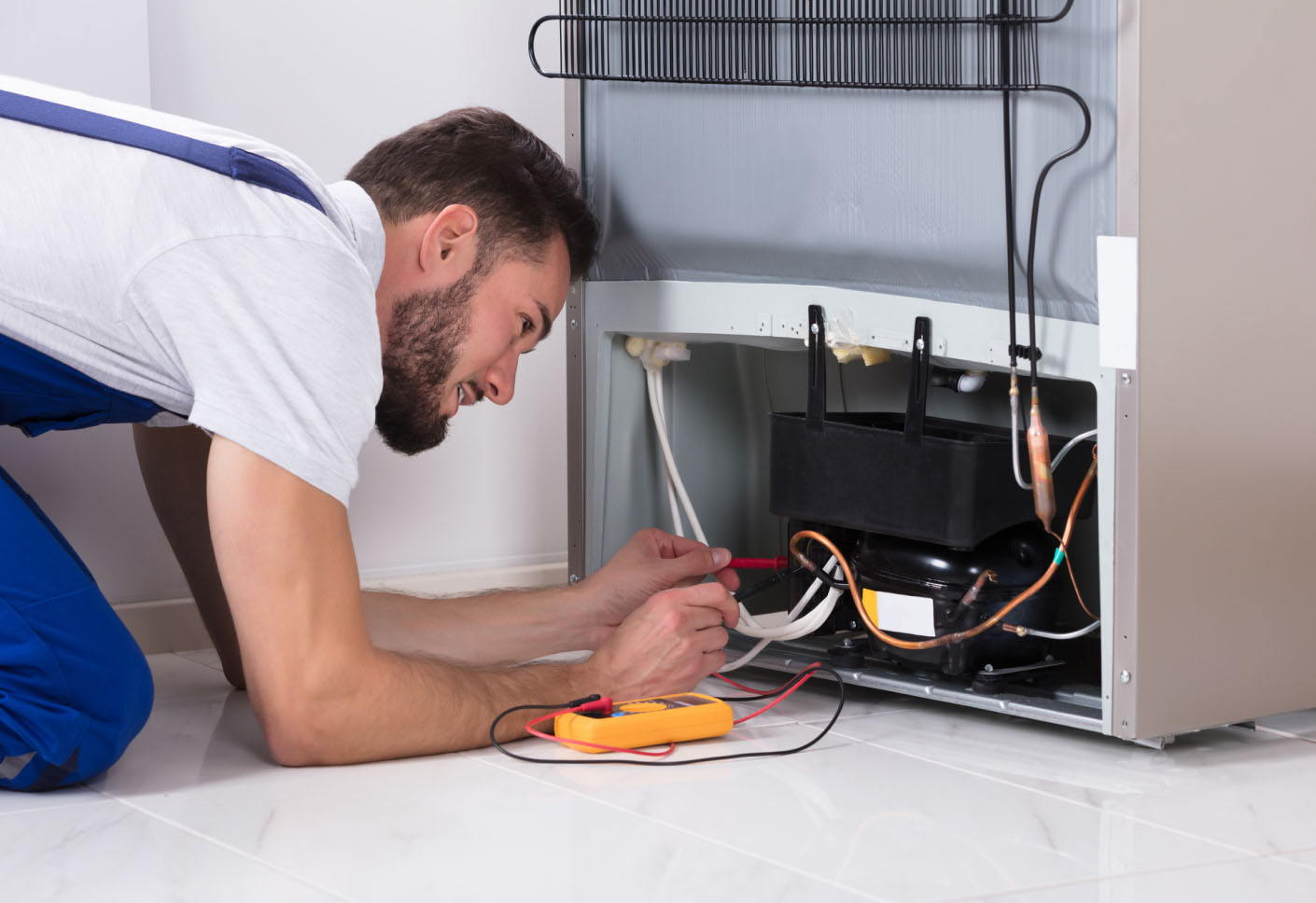At TheKitchenApplianceDad.com, we often receive questions about the normal operating conditions of kitchen appliances, especially when it comes to the parts that aren’t always seen but are crucial for operation. Today, we’re diving into a common query: Should a refrigerator compressor be hot?
What is a Refrigerator Compressor?
Before we get into the details about temperatures, let’s understand what a compressor does in your refrigerator. The compressor is often referred to as the “heart” of the refrigerator. It’s responsible for compressing the refrigerant, which absorbs heat from the fridge’s interior. The compressed refrigerant then releases the absorbed heat through the condenser coils located at the back or bottom of the appliance.
Normal Compressor Temperature
It’s normal for your refrigerator’s compressor to feel warm or even hot to the touch. During normal operation, compressors generate heat because they need to compress the refrigerant to circulate it through the system.
The average temperature of a compressor in full operation typically ranges from warm to moderately hot. Generally, you might find that it can feel quite hot immediately after the compressor stops. This is because the compressor generates heat as it works to compress the refrigerant gas. However, it shouldn’t be alarmingly hot to the touch.

Signs of Overheating
While it’s normal for the compressor to be hot, excessive heat can be a sign of a problem. Here are a few indicators that your refrigerator compressor might be overheating:
- Excessive Outer Case Heat: If the compressor’s exterior is too hot to touch for more than a few seconds, it might be overheating.
- Frequent Stops and Starts: Known as short cycling, this can cause the compressor to overheat due to it constantly turning on and off.
- Loud Noises: If your compressor is making unusual noises, it could be a sign that it is struggling and possibly overheating.
- Electrical Smells: An overheating compressor can sometimes emit a burning smell, which could indicate that it’s time to call a technician.
Causes of Compressor Overheating
Understanding why a compressor might overheat can help you troubleshoot or prevent this issue:
- Dirty Coils: When the condenser coils are dirty, they can’t release heat as effectively, causing the compressor to work harder and get hotter.
- Insufficient Ventilation: If your refrigerator doesn’t have enough space around it, especially near the condenser coils, it can lead to poor air circulation and overheating.
- Faulty Fan: If the fan that cools the compressor isn’t working correctly, it won’t be able to dissipate heat properly.
- Age of the Refrigerator: Older compressors might become inefficient and prone to overheating as they wear out.
- Low Refrigerant Levels: Leaks or low levels of refrigerant can cause the compressor to overheat as it tries to work harder to circulate the substance through the system.
Preventing Compressor Overheating
To keep your refrigerator’s compressor running smoothly and prevent overheating, you can take several proactive steps:
- Regular Maintenance: Clean the condenser coils at least twice a year to ensure they can release heat effectively.
- Ensure Proper Ventilation: Always leave sufficient space around your refrigerator, especially near the back where the coils are located.
- Check the Fan: Make sure that the fan cooling the compressor and condenser coils is functioning correctly.
- Listen for Unusual Noises: Pay attention to any strange sounds coming from your refrigerator, as these could indicate potential problems.
When to Seek Professional Help
If you suspect your refrigerator’s compressor is overheating despite your maintenance efforts, it may be time to call a professional. Technicians can check for refrigerant leaks, electrical issues, and other problems that might not be easily discernible at home.
Key Takeaways
- Normal Heat: It’s normal for a refrigerator compressor to be warm or moderately hot during operation.
- Signs of Trouble: Excessive heat, short cycling, unusual noises, and electrical smells can indicate that the compressor is overheating.
- Common Causes: Overheating can be caused by dirty coils, insufficient ventilation, faulty fans, age, and low refrigerant levels.
- Prevention Tips: Regular maintenance, ensuring good ventilation, and paying attention to your refrigerator’s operation can help prevent overheating.
By understanding these aspects of your refrigerator’s compressor, you can ensure that it operates efficiently and lasts longer. Remember to keep an eye on these factors and seek professional help when needed to maintain the health of your appliance. For more insights into managing your kitchen appliances effectively, stay tuned to TheKitchenApplianceDad.com.


